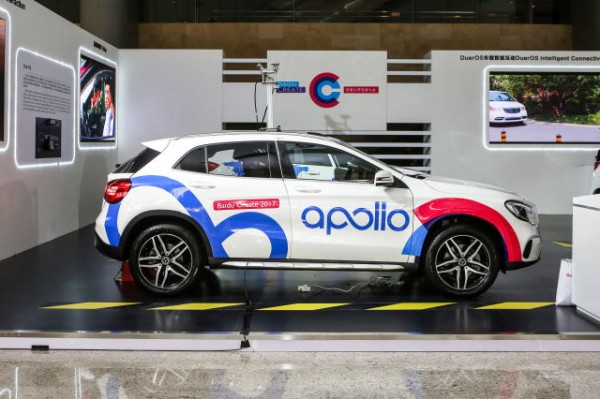Infineon Technologies AG and Baidu Inc. jointly announced at the Consumer Electronics Show (CES) in Las Vegas that Infineon is joining the Apollo Program of Baidu. Based on Baidu’s ability in AI and autonomous driving, as well as Infineon’s advantage in automotive electronics hardware platforms, both parties will cooperate in depth to promote rapid development of autonomous driving technology to improve people’s intelligent life. Marking an important fusion of Infineon’s automotive electronics ecosystem and the Apollo automotive ecosystem built by Baidu, the cooperation will create more opportunities for both parties’ partners to join hands to promote the progress of the intelligent automotive industry.
Since launching the Apollo autonomous driving platform in 2017, Baidu has built a strong technology framework and improved ecosystem, from cloud services and open source software to reference hardware and vehicle platforms. Nearly a hundred developers in the industry have joined the program to give play to their respective expertise. Infineon as a global leader in automotive electronics has more than 40 years of experience and technical innovation ability in automotive semiconductors. For the Apollo hardware platform, such areas as microcontrollers, radar, and lidar sensor chips as well as information security and functional safety are the key products and applications that Infineon is focusing on. They will be the main areas of cooperation between both parties.
“We are very pleased to see that the Apollo platform is attracting more and more excellent partners and continuously making substantial progress,” said Zhenyu Li, Vice President and General Manager of Intelligent Driving Group of Baidu. “The joining of Infineon means the addition of an important hardware cornerstone to the program. We will keep trying, working together with partners to promote rapid development of the autonomous driving industry.”
“Already today, microelectronics from Infineon foster advanced driver assistance systems and electric vehicles enabling clean, safe, and smart cars,” said Peter Schiefer, President of the Automotive Division at Infineon. “With our profound expertise in automotive applications as well as the premium products and services, Infineon significantly contributes to the breakthrough of autonomous driving. It is in this regard that we look forward to supporting Baidu in taking the Apollo initiative to the next level.”
Based on the philosophy of combining safety with performance, Infineon offers the AURIX™ family of scalable 32-bit multicore microcontrollers with real-time capabilities for sensor applications, domain and central gateway controllers, and sensor fusion applications. In addition, the company provides a variety of ICs for radar, lidar, and camera systems in sensor applications. In terms of actuators, Infineon covers all the important features of ADAS and autonomous driving, including transmission, engine, brake, chassis, and steering system.
“Baidu’s Apollo ecosystem is well planned, far-sighted and practical. It encompasses all areas of autonomous driving from ICs to cloud big data while providing an open source platform for developers in a cooperative and open model,” said Helen Xu, Vice President of Infineon China and Head of Automotive Division of Infineon China mainland, Hong Kong, and Taiwan Region. “We are very honored to join the Apollo program to wield our technical advantage in automotive semiconductors and the resource advantage of our automotive electronics ecosystem to accelerate automotive intelligence for a better future.”
The AURIX MCU family provides safe and secure computing power of up to 3,600 DMIPS, 16 MB flash memory and 6.5 MB protected SRAM. The innovative multicore safety architecture, which meets highest ISO 26262 standards, can help automotive system manufacturers achieve the ASIL-D safety level. AURIX microcontrollers integrate a programmable hardware security module (HSM) to meet various data security and privacy protection requirements on the Internet of Vehicles environment, which is one of the essential conditions for autonomous driving.
Infineon’s 77 GHz and 24 GHz radar products, which hold a leading position in the global market, can effectively help vehicles to accurately detect distance under harsh weather and road conditions. In 2016, Infineon acquired Innoluce, a Dutch company, to further strengthen its expertise in lidar as another move in its strategic layout in autonomous driving.
Further information is available at www.infineon.com








